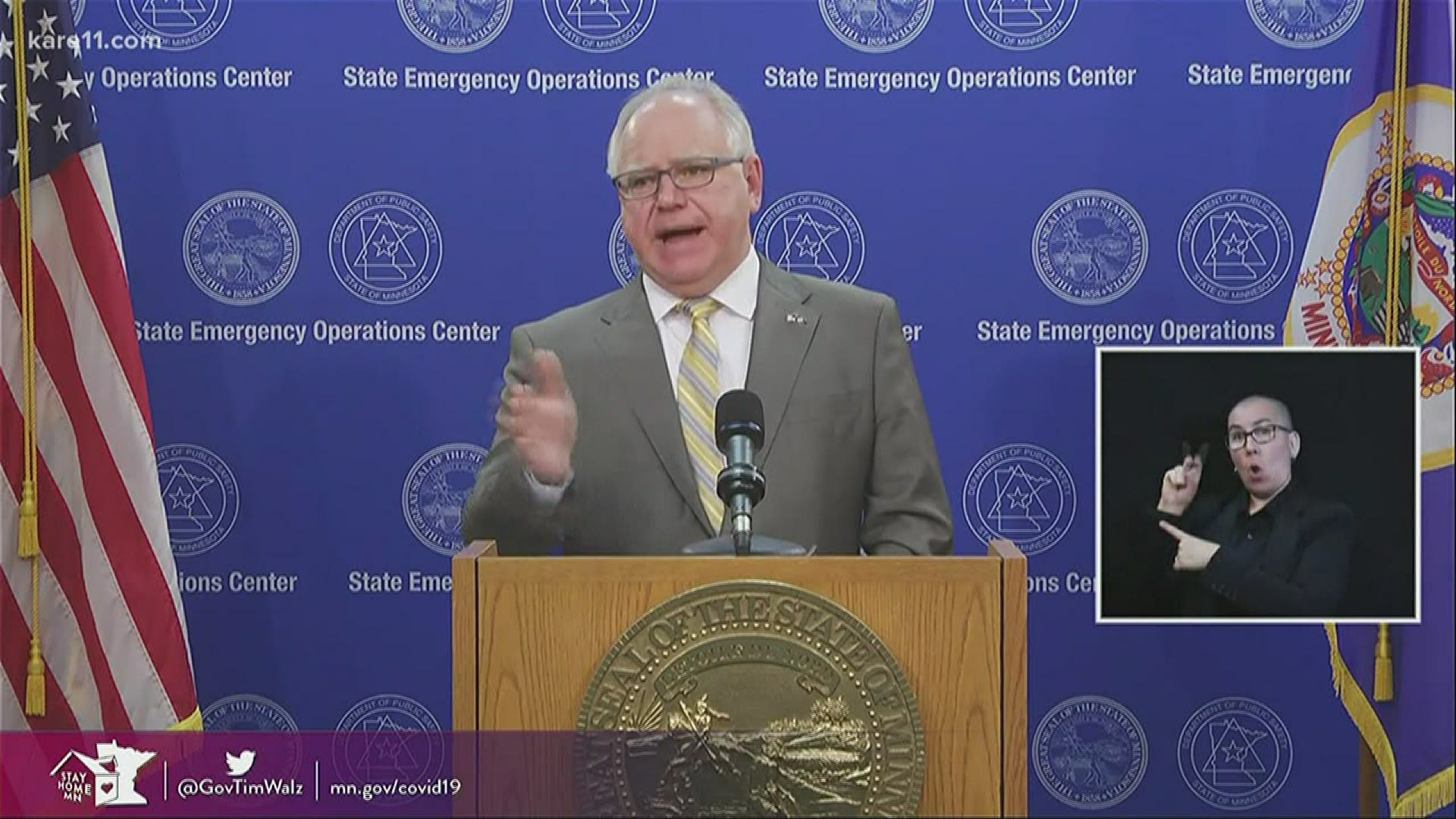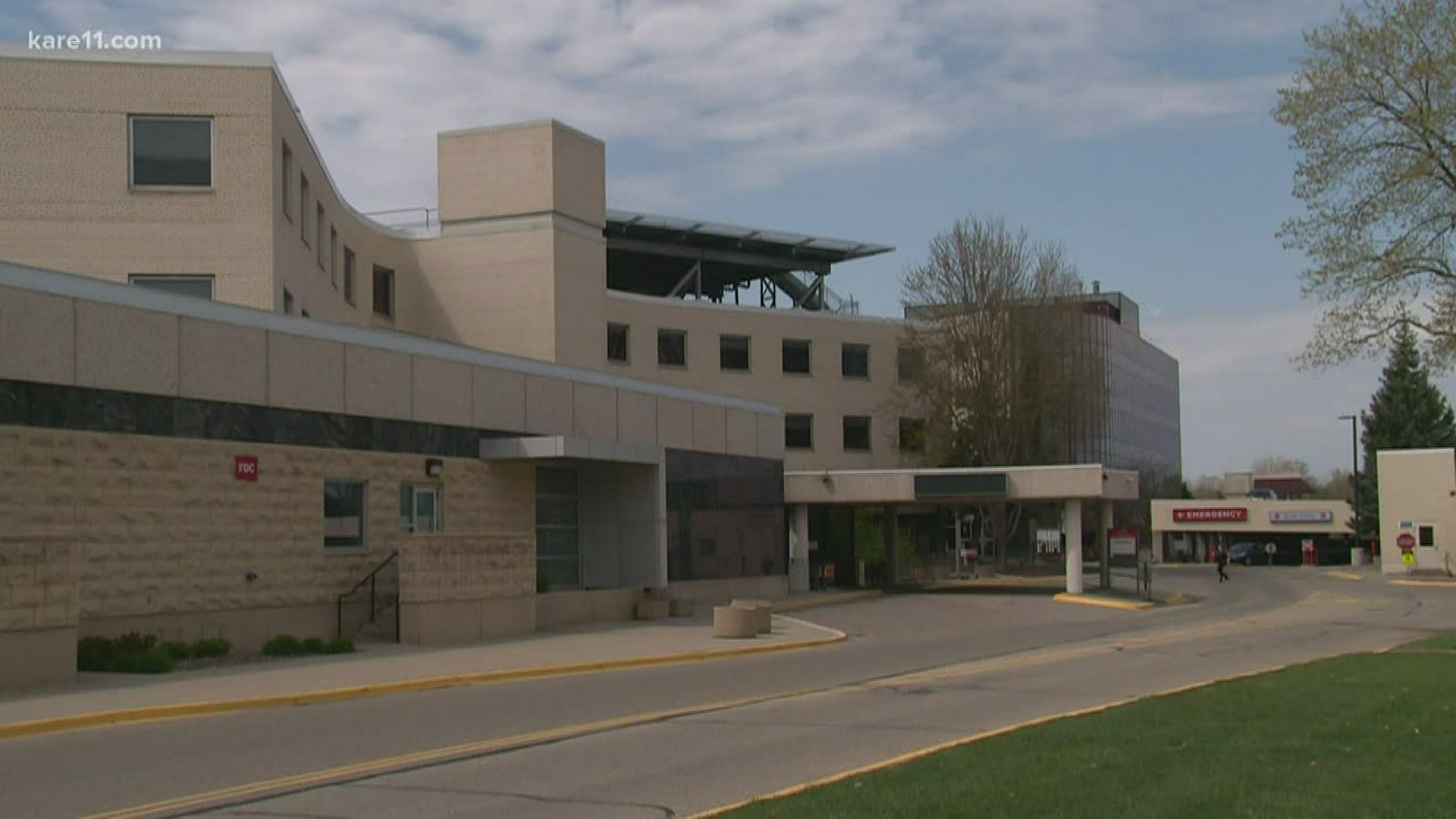For the first time since mid-March, Minnesota healthcare providers are getting ready to perform surgeries and other procedures not deemed essential, but that could mean something different depending on where you receive care and what you need.
On Tuesday, Governor Walz announced a new executive order that will allow healthcare providers to begin expanding services on Monday, May 11th. First, providers will need to have a COVID plan in place that meets several requirements. Most notably, the plans must provide a safe environment for staff, patients and visitors; and they also must prioritize procedures based on risk/benefit.
"You feel like you're walking on razor blades constantly because of the balance of what it takes," said Governor Walz.
The state has seen daily ICU and hospitalization rates increase to new highs in recent days, but the Governor says the decision is still possible because the state has helped build up ICU capacity and stockpile PPE to help handle an anticipated surge of COVID cases.
Still, healthcare providers say they'll need to take things slow.
"We certainly can't open back to full speed, the way we were prior to March 15th," said Dr. Parker Eberwein, Health Partners Senior Medical Director for Surgical Services.
Dr. Eberwein helped develop a plan for Health Partners, which starts by prioritizing surgeries that alleviate chronic pain and conditions; or prevent, cure, or slow the progression of diseases.
"There are patients out there that have now waited a couple of months that are suffering, when they weren't really suffering before. We have to take all that into consideration," Dr. Eberwein said.
Marc Gorelick, CEO of Children's Minnesota, says the threat of COVID has been more indirect, so they are closely following state dashboards on COVID spread, ICU capacity and PPE supplies. He says they're also screening, masking and separating patients and staff.
"A lot of our children are kids with underlying health conditions. We want to make sure that they're protected, that their parents are protected and that are staff are protected," Gorelick said. "Some of those procedures are getting to the point where the care can no longer be delayed."
M Health Fairview will go further, testing all incoming patients two to three days before surgery.
"If somebody actually turns out to be COVID positive, it might not be a great idea to operate on them," said Peter Kelly, M Health Fairview Executive Medical Director of surgery. "Because they may be in that asymptomatic phase, but they may become symptomatic shortly after we operate on them."
The tests are also aimed at conserving supplies.
"With those patients then, we don't have to use as much personal protective equipment because we feel pretty confident that they aren't shedding the virus," Kelly said.
Children's and Health Partners don't have that testing capacity yet, though they are working on it.
"Testing patients, for example, who may be at a higher risk of spreading the illness if they were infected," Gorelick said.
"Ideally, perhaps it would be worthwhile to test everyone in an effort to save PPE," Eberwein said. "In the absence of that we'll just use appropriate PPE to protect everyone."
KARE 11’s coverage of the coronavirus is rooted in Facts, not Fear. Visit kare11.com/coronavirus for comprehensive coverage, find out what you need to know about the Midwest specifically, learn more about the symptoms, and see what companies in Minnesota are hiring. Have a question? Text it to us at 763-797-7215. And get the latest coronavirus updates sent right to your inbox every morning. Subscribe to the KARE 11 Sunrise newsletter here. Help local families in need: www.kare11.com/give11.
The state of Minnesota has set up a hotline for general questions about coronavirus at 651-201-3920 or 1-800-657-3903, available 7 a.m. to 7 p.m.
There is also a data portal online at mn.gov/covid19.


